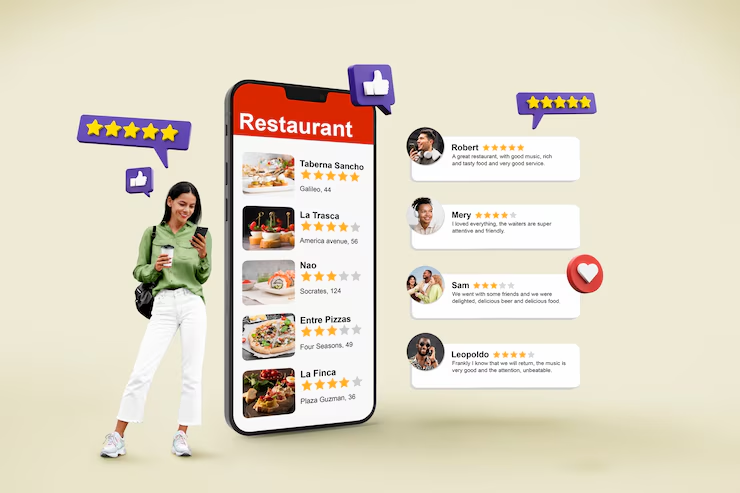Table of Contents
Toggle1. Understand the Basics of How to Learn SEO
Before diving into advanced techniques, it’s crucial to grasp the fundamentals of SEO. Start with these core concepts:
- What is SEO?
SEO is the process of optimizing your website to rank higher on search engines like Google. This involves various strategies to improve the visibility of your website in organic (non-paid) search results. - Why SEO Matters:
SEO is essential because it helps your site attract more visitors without the need for paid ads. Organic traffic is often more sustainable and tends to convert better. - Types of SEO:
- On-Page SEO: Optimizing elements on your website, such as content, meta tags, and images.
- Off-Page SEO: Building backlinks and improving your website’s authority through external signals.
- Technical SEO: Enhancing the technical aspects of your site, like loading speed and mobile-friendliness.
Familiarize yourself with SEO terminology and basic concepts through online resources. Websites like Moz and Ahrefs offer beginner guides to SEO, which are great for getting started.
2. Learn About Keywords and Keyword Research
Keyword research is the foundation of SEO. It involves finding and analyzing the search terms your audience uses on search engines. Here’s how to start with keyword research:
- Use Keyword Research Tools:
Tools like Google Keyword Planner, Ubersuggest, and Ahrefs Keyword Explorer can help you discover relevant keywords for your niche. - Identify Your Target Keywords:
Look for keywords that are relevant, have good search volume, and aren’t too competitive. Target a mix of short-tail and long-tail keywords to cover various aspects of your topic. - Analyze Competitors:
Research keywords your competitors rank for and consider including similar terms in your content strategy.
Keyword research will inform what topics you should cover on your site to attract your target audience.
3. Master On-Page SEO Technique
On-page Learn SEO refers to optimizing elements on your website pages to improve rankings. Here are some key areas to focus on:
- Content Optimization:
Create high-quality, informative, and engaging content around your keywords. Your content should be well-organized and provide real value to readers. - Title Tags and Meta Descriptions:
Title tags are essential for SEO, as they tell search engines what your page is about. Meta descriptions provide a summary of your page in search results and can increase click-through rates. - Headings and Subheadings:
Use H1, H2, and H3 tags to structure your content. Headings make your content easier to read and help search engines understand the main topics. - Image Optimization:
Include images with descriptive alt text and compress them to ensure quick loading times. - Internal Linking:
Link to other pages on your website where relevant. This helps with Learn SEO and improves user experience by guiding visitors to related content.
4. Explore Off-Page SEO and Link Building
Off-page SEO focuses on increasing the authority of your website through external means. The primary way to boost your off-page SEO is through link building.
- What is Link Building?
Link building involves getting other websites to link back to your site. High-quality backlinks from reputable sites can significantly boost your SEO rankings. - Guest Posting:
Write guest posts for other websites in your niche. Include a link back to your site to increase visibility and authority. - Social Media Promotion:
Promote your content on social media channels. Although social media links are typically no-follow, they can drive traffic and increase your brand’s reach. - Collaborate with Influencers and Bloggers:
Connect with influencers and bloggers who can share your content with their audience.
Building high-quality backlinks can take time, but it’s one of the most effective ways to boost your site’s authority and search rankings.
5. Dive into Technical SEO
Technical SEO ensures that your website meets the technical requirements of modern search engines. Here are some essential elements to focus on:
- Website Speed:
A fast website improves user experience and is preferred by search engines. Use tools like Google PageSpeed Insights to check and optimize your site speed. - Mobile-Friendliness:
Google prioritizes mobile-friendly websites. Use responsive design and test your site’s mobile compatibility. - XML Sitemap and Robots.txt:
An XML sitemap helps search engines understand your website structure. Robots.txt tells search engines which pages to crawl and index. - Secure Your Site with HTTPS:
Having a secure website is essential for both Learn SEO and user trust. Make sure your website uses HTTPS rather than HTTP.
Technical SEO can seem complex, but there are plenty of guides and tutorials available to help you implement these changes.




